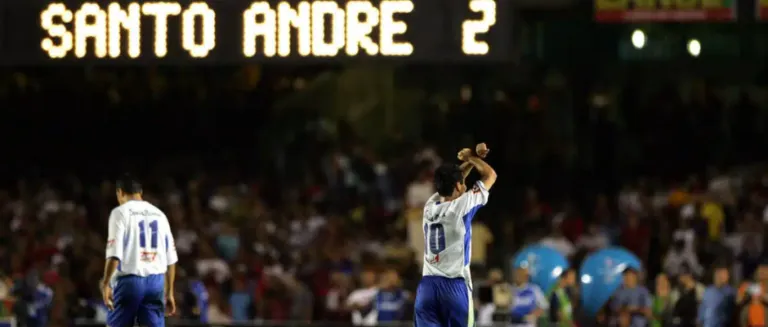The 2004 Copa do Brasil remains a landmark edition in Brazilian football, remembered for its unexpected setbacks and triumphs of underdogs. In this 16th edition of the tournament, which took place from February 4 to June 30, 2004, 64 teams competed in a knockout format. The competition, known for its unpredictability, demonstrated just how thrilling and surprising Brazilian football can be.
Santo André, a small team from the state of São Paulo, made history by winning its first Copa do Brasil title. Despite being considered an underdog, Santo André's journey to the top was marked by determination and resilience. They faced tough opponents and eventually reached the final against Flamengo, one of the giants of Brazilian football. The first match, held at Santo André's stadium, ended in a 2-2 draw, setting the stage for an exciting second match at the iconic Maracanã Stadium in Rio de Janeiro.
In front of a packed stadium, Santo André pulled off a stunning turnaround, defeating Flamengo 2-0. This victory was particularly sweet, as it not only secured the Copa do Brasil trophy but also guaranteed a spot in the prestigious Copa Libertadores, the most important club competition in South America. For Flamengo, the defeat was a bitter blow, as they were favorites to win the title but were outperformed by a determined and tactically astute Santo André.

Santo André's success in the 2004 Copa do Brasil is often cited as one of the greatest underdog stories in Brazilian football. Their victory symbolized the potential for smaller clubs to achieve greatness, even in a football landscape dominated by big names and wealthier teams. The tournament also featured standout performances from players like Dauri, who emerged as the top scorer with 8 goals, showcasing his talent for 15 de Novembro.
Overall, the 2004 edition of the Copa do Brasil was not just about Santo André's victory. It was about the essence of the competition, which allows clubs from all over Brazil, regardless of size or resources, to compete on a national stage. The tournament featured 114 matches and a total of 325 goals, with an average of 2.85 goals per game, highlighting the offensive nature of Brazilian football. For Santo André, their victory remains a defining moment, a testament to the unpredictability and excitement that the Copa do Brasil continues to offer.